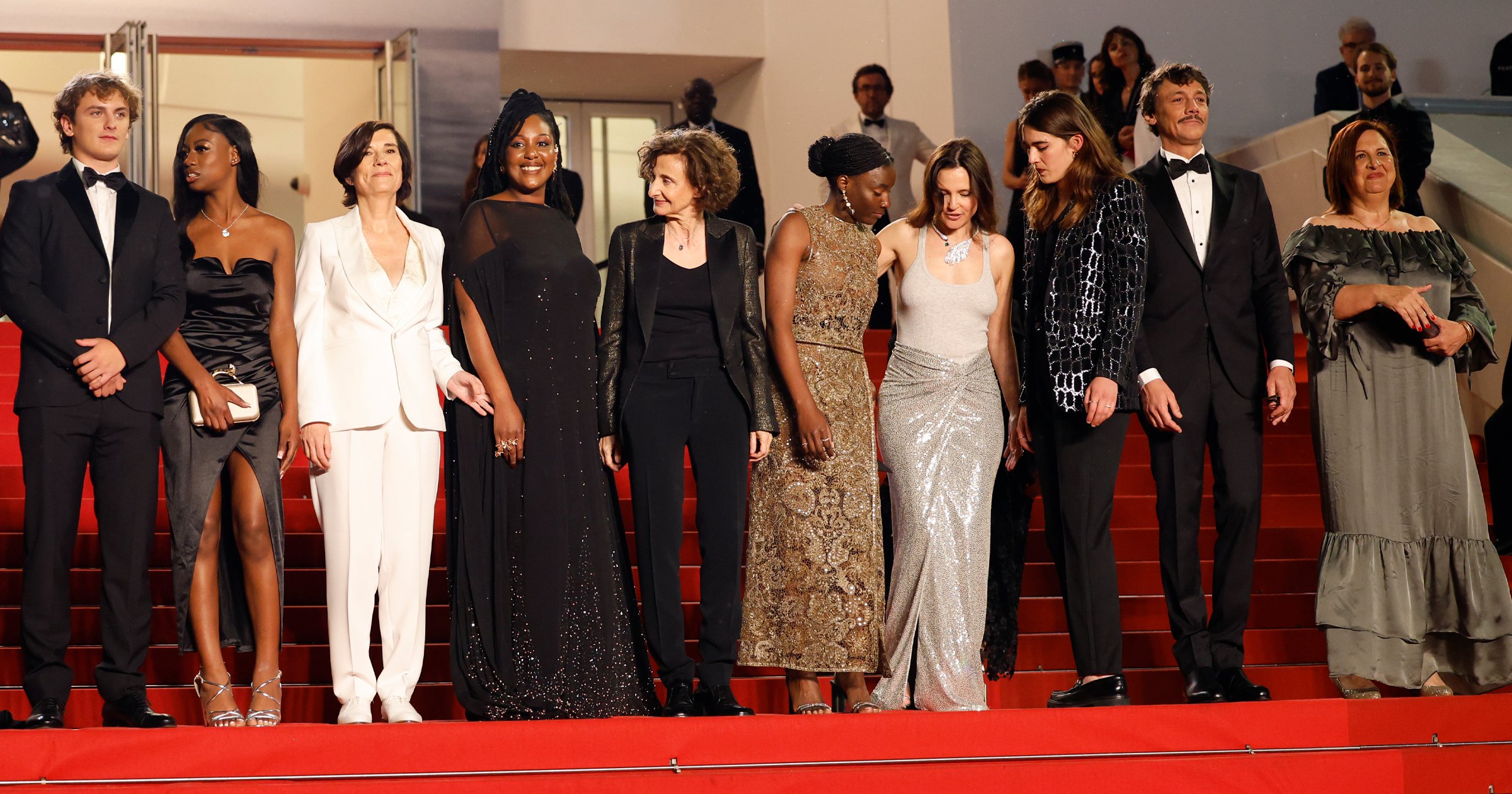
This week, Hollywood and the wider international film industry have descended for the prestigious 76th annual film festival.
Films including work from the likes of , Hirokazu Kore-eda and Wes Anderson are showing at the prestigious event, which traditionally heralds the beginning of the following calendar year’s awards season, giving , as well as chance for projects to .
There’s also already surrounding the decision to show ’s new film, Jeanne du Barry, , following his court battles with ex-wife .
But with the likes of , Ethan Hawke and Cate Blanchett on the Croisette, many of are here in attendance – and so am I.
Among the roughly 13,500 attendees of the festival in the French Riviera city from May 16 until May 27, I’m negotiating 7am booking windows, the local bus system to further-flung cinemas and late-night screenings – all in my admittedly very rusty French.
One of the most glamorous parts of Cannes is the sometimes twice-nightly that take place in the Palais des Festivals’ biggest and most prestigious space, .
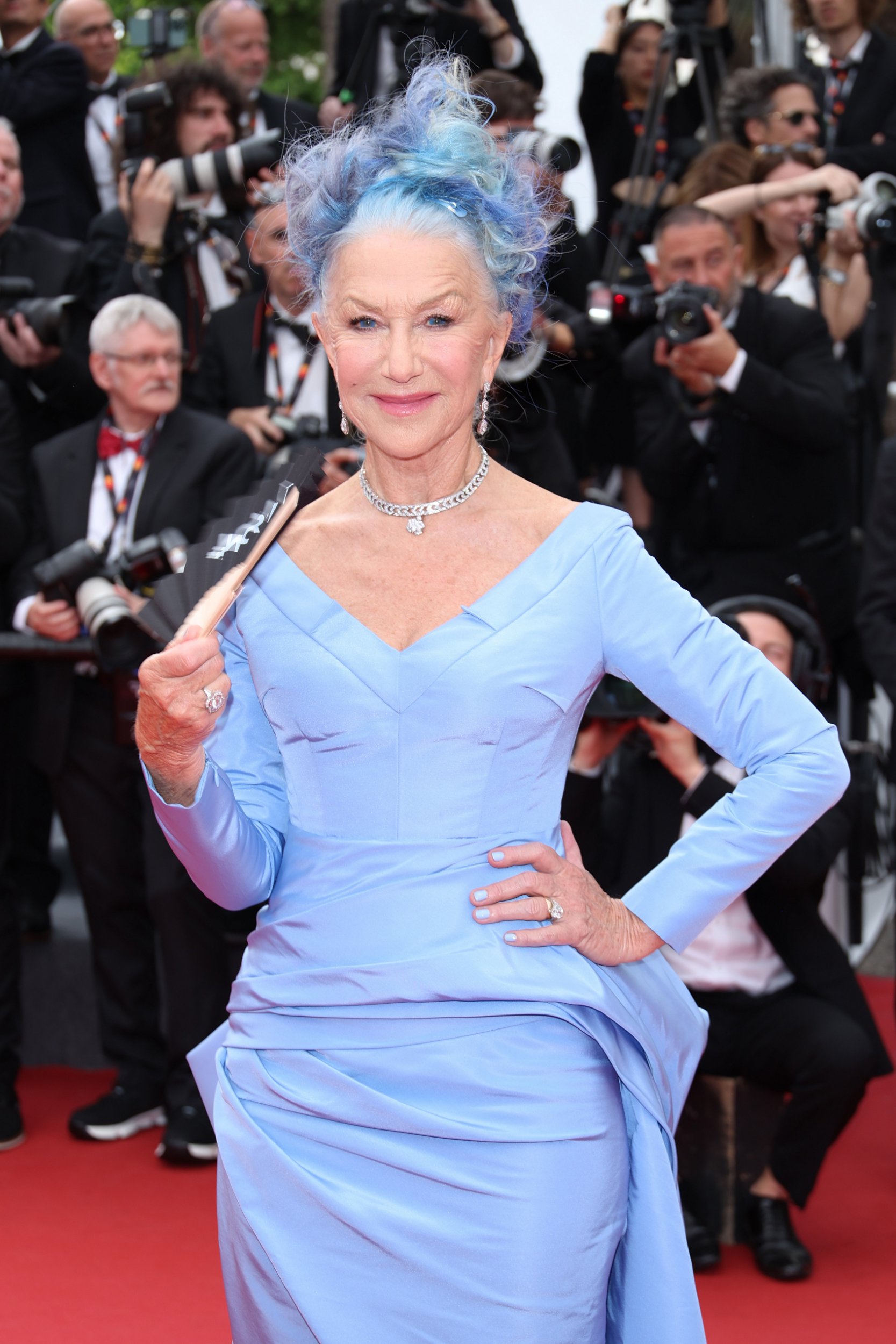
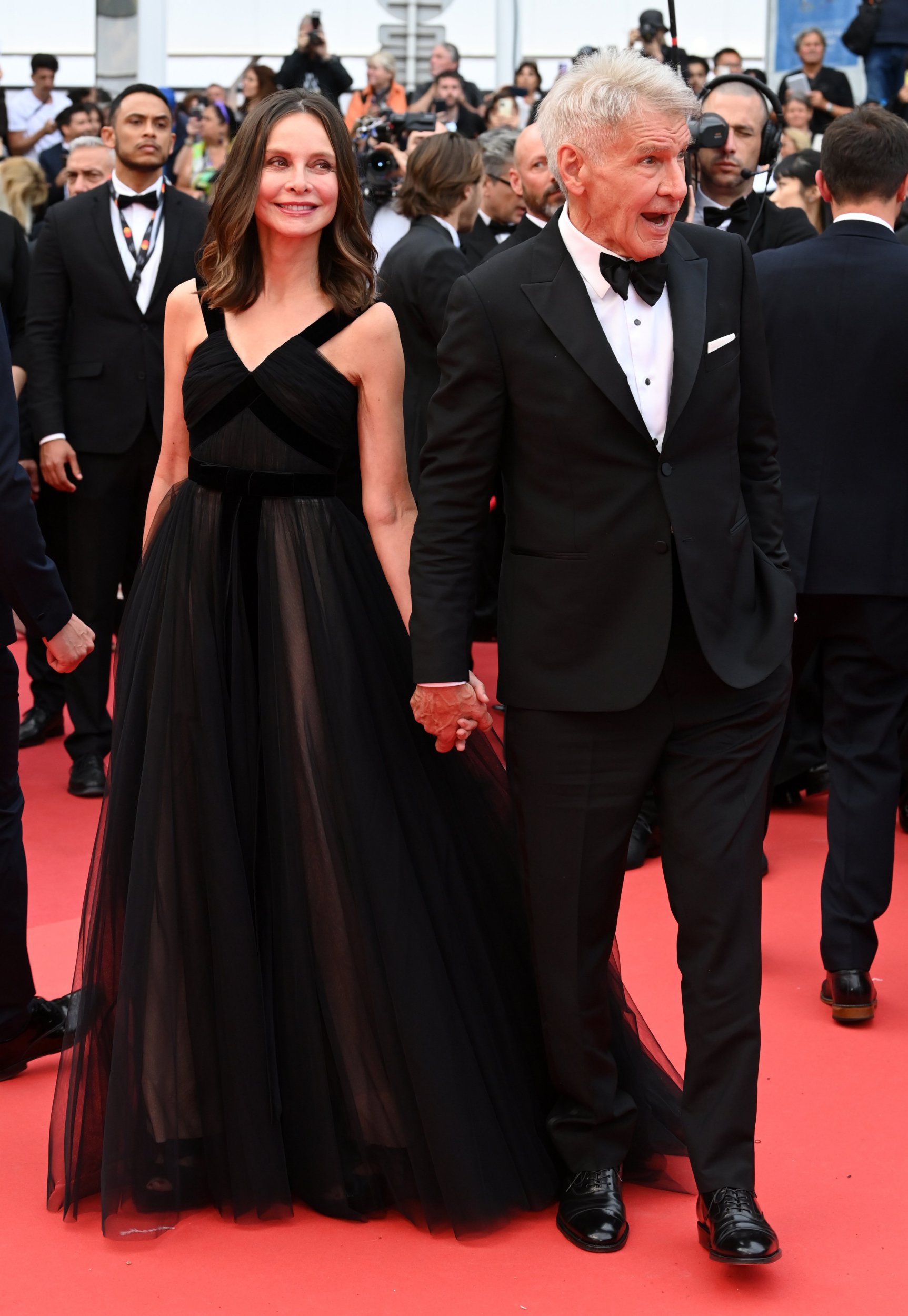
That’s the huge central 2,309-seater theatre, which you enter via some of the most famous steps in showbiz.
Each premiere has some space allocated for accredited attendees via tickets released in a balloting system, including press, but unsurprisingly these are extremely hard to come by – these are, after all, the hottest tickets in town.
You can always queue to try your luck for last-minute access to these special premiere screenings with the cast if you’re an accredited attendee, but you’ll have to adhere to the black-tie dress code, which makes Cannes one of the best-dressed events in the world. You’re only ever so far from a very well-turned out individual – even first thing in the morning.
It’s also common to see hopeful guests dressed to the nines and holding signs for the films they want to try and get premiere tickets for (you’re allowed to transfer them, but never sell), lurking around outside the Palais.
Luckily, the festival has loosened the dress requirements a little in recent years, which previously included an unofficial ban on anything other than high heels for women, adding further categories of allowed dress to its premiere screenings, including suits, cocktail dresses and little black dresses.
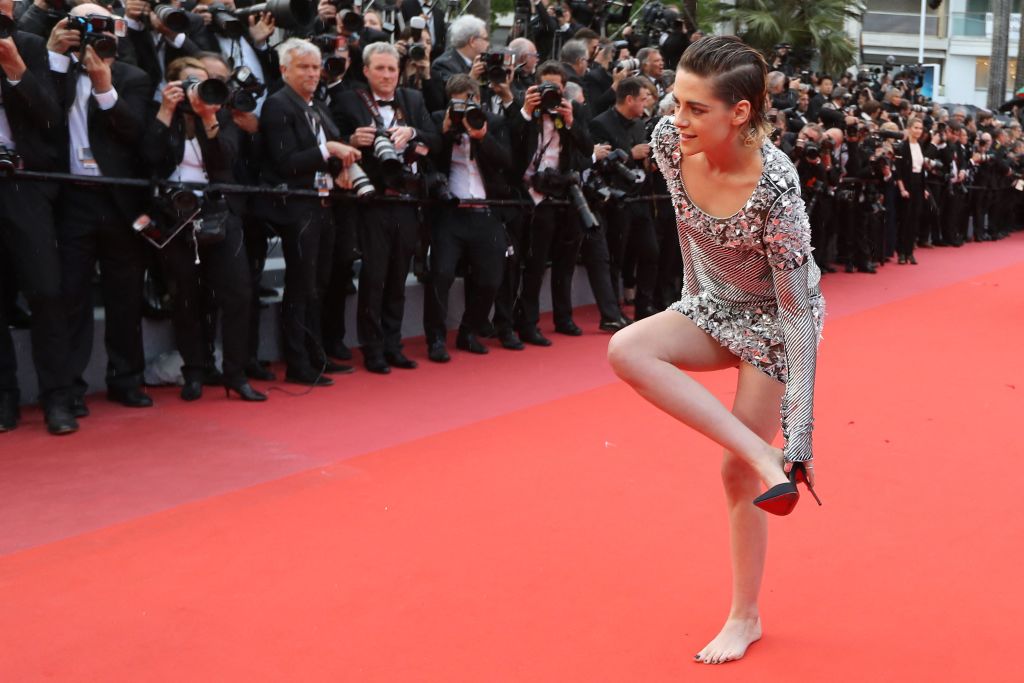
The subsequent fashion parade is rather delightful (although I remain unconvinced by the jeans and black-tie combination I saw one gentleman wearing).
My first night in Cannes fell on Wednesday, and I was lucky enough to score an invitation to that night’s red-carpet premiere for Le Retour (Homecoming), courtesy of the owner of the hotel in which I’m staying.
Having spent the afternoon picking up my press pass and trying to familiarise myself with the festival complex (it really is massive), I returned to my room ready to get dressed up for the occasion. I also gave thanks for heels no longer being mandatory as my walk includes a steep cobbed hill, so that’s a firm no from me.
Every ticket issued either electronically or physically to guests by the festival specifies an arrival time – to help avoid the inevitable build-up of queues (I haven’t really seen this work though). My arrival time was 9:05pm for a 10:15pm start, most likely down to the organisational faff of manning the red carpet properly.
The area around the Palais is always very busy with so much going on but mix in the arrivals for the Grand Théâtre Lumière premiere showing and it is next level.
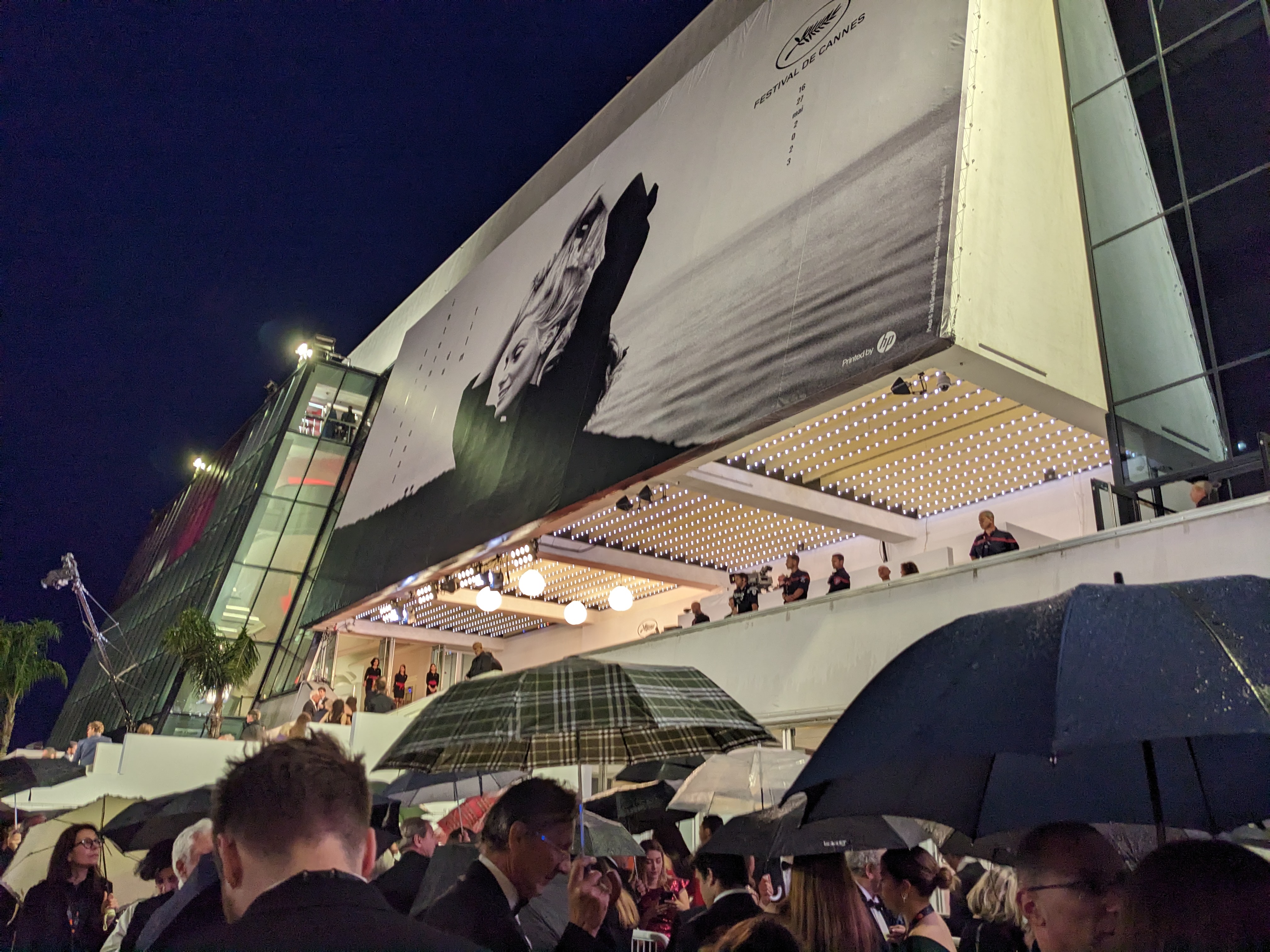
Having worked out where my line to join was eventually, as someone with a balcony seat, I joined the correct queue in the light rain – so far so very British – which led into a holding area directly to the right of the famous stairs.
I quickly realised that meant our red-carpet experience was curtailed to just the steps themselves rather than any of the carpeted lead-up by the road.
You also have officials watching you like a hawk because no selfies or loitering are allowed on the red carpet, and they take that very seriously. Just the briefest hesitation or suggestion that you may be reaching towards your pocket or bag earns a swift reprimand.
The festival , with the festival’s artistic director, Thierry Frémaux, saying they .
However, it wasn’t long before it was my time on the stairs, and I was being chivvied along to climb them speedily and enter the building – all I managed was a quick look over my shoulder to survey the whole area. There are official photographers who work the red carpet taking pictures of the celebrities and other attendees, which you can purchase later, but they appeared to be a bit put off by the weather (or us) at that particular moment.
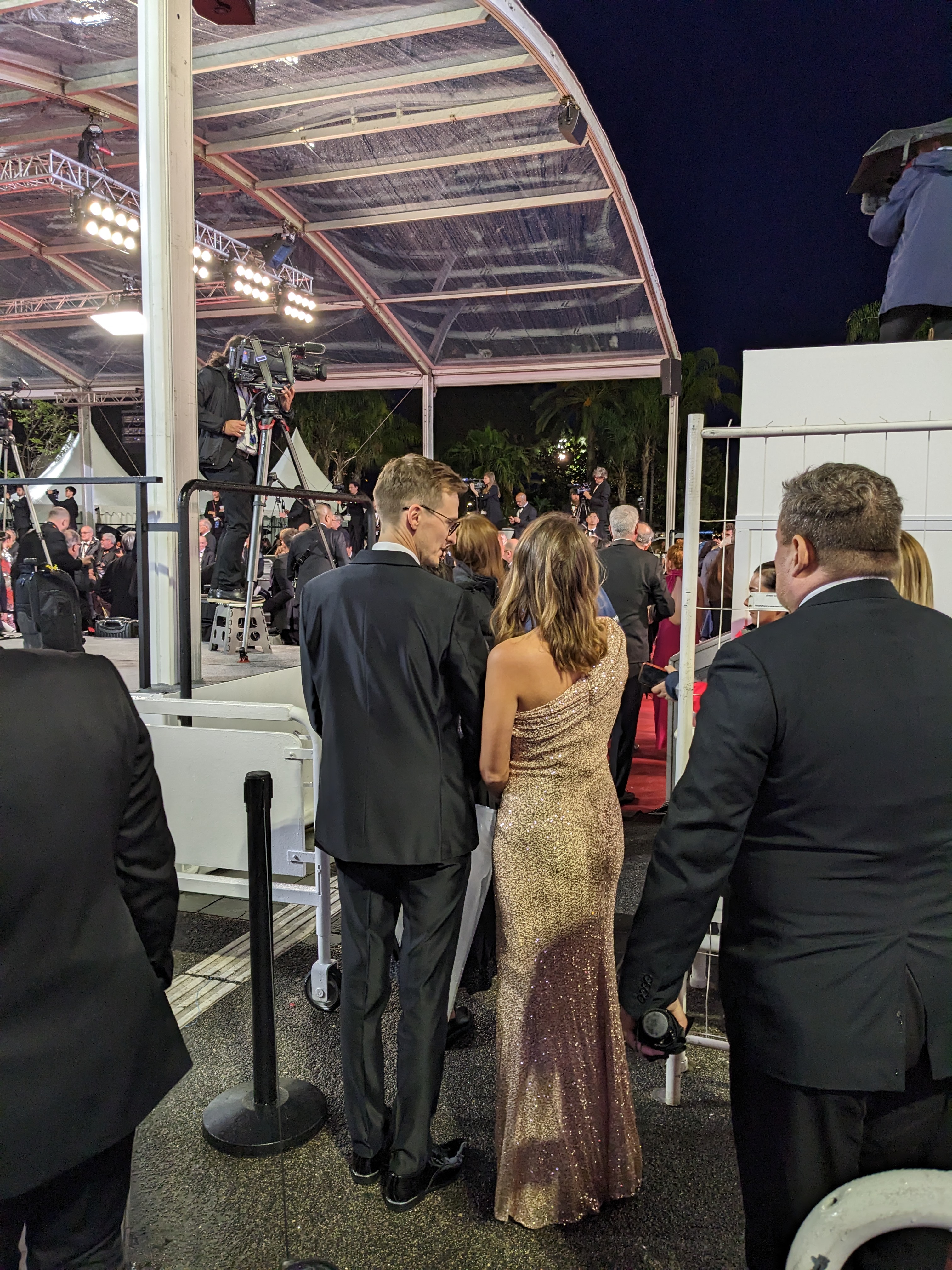
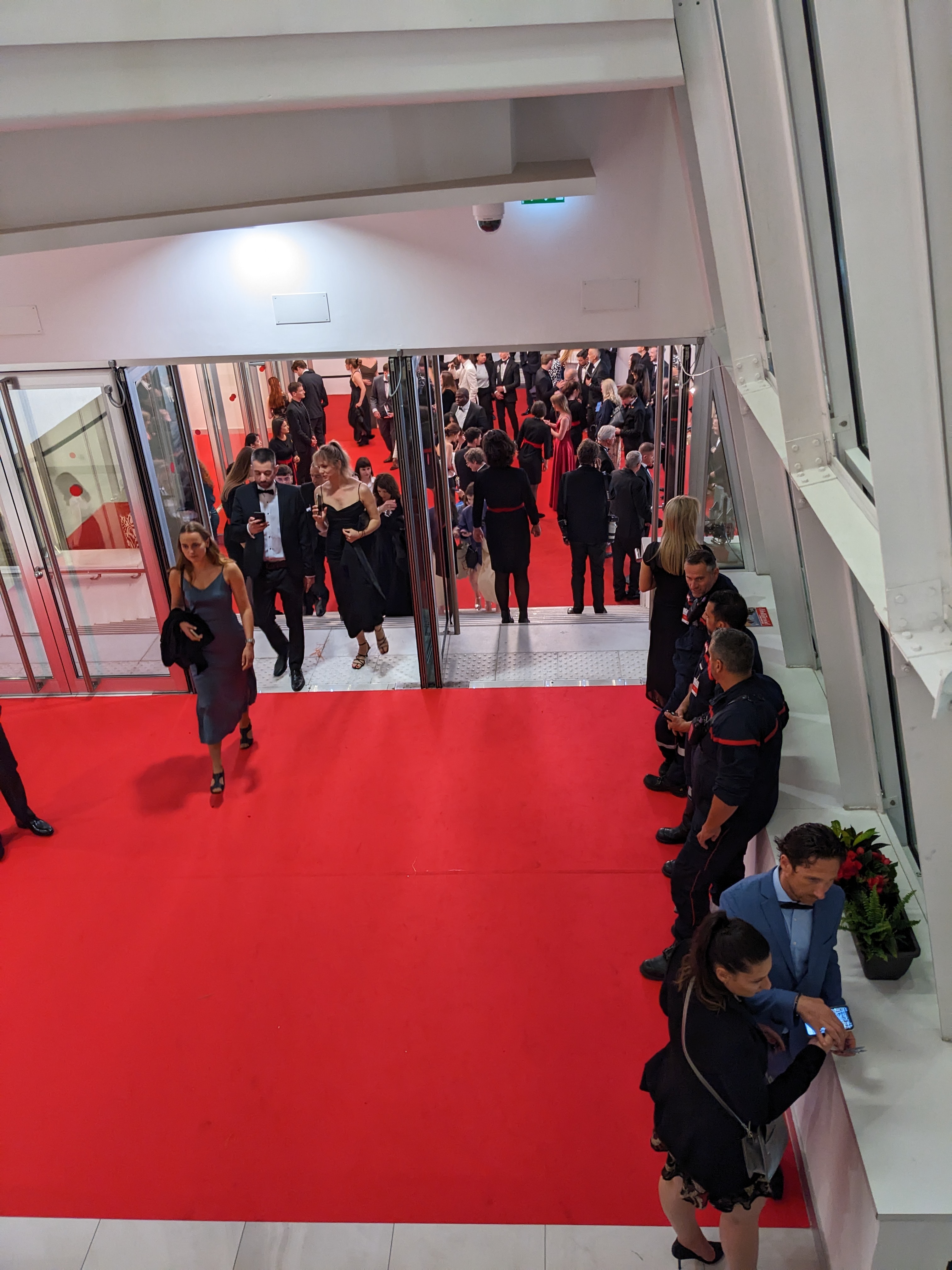
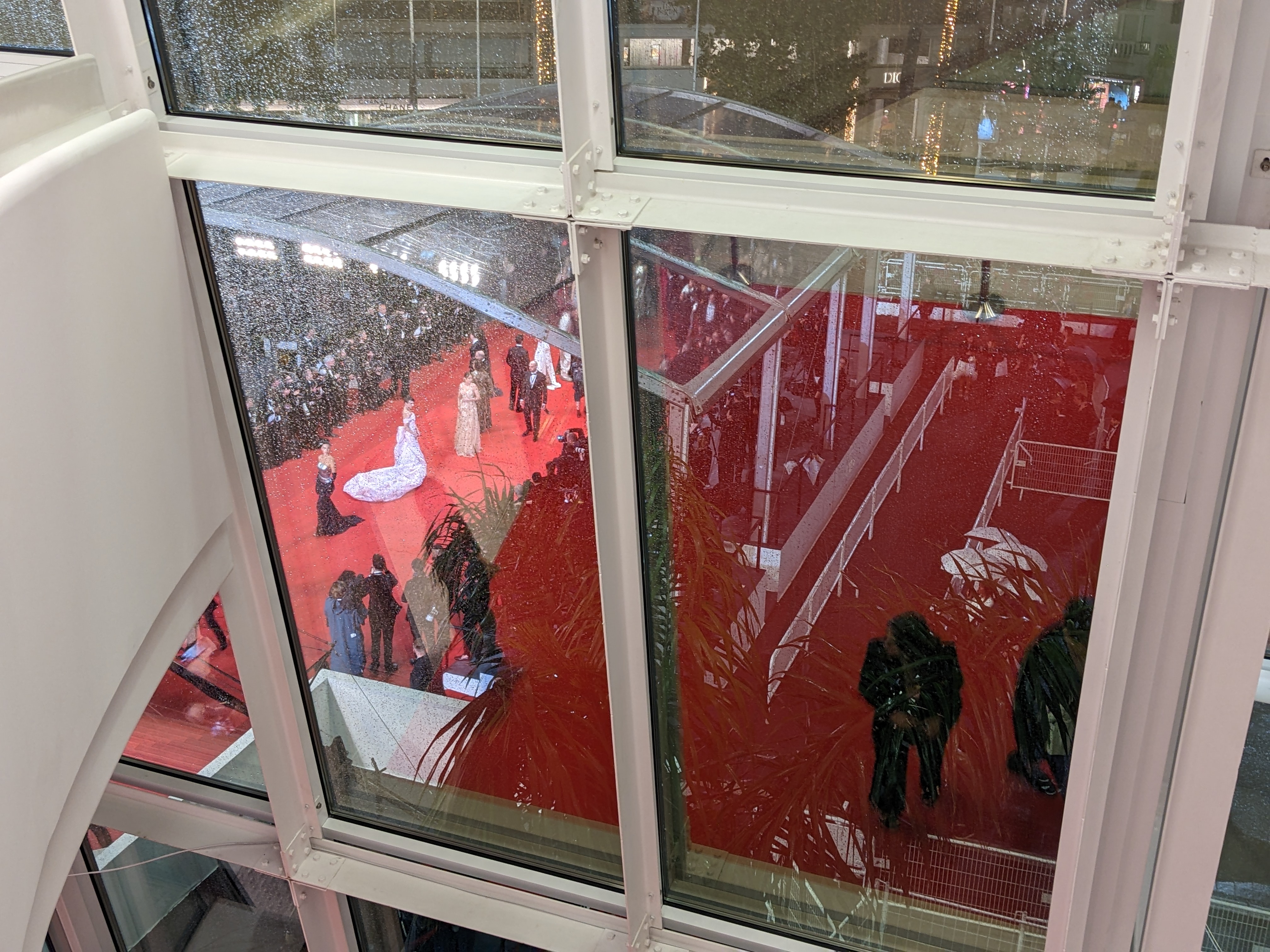
As I entered the Palais, I was able to finally get a snap of what was happening below, with the arrival of the cast of Le Retour, the film that was premiering that night.
Heading into the Grand Théâtre Lumière, the vastness of it struck me all over again – the balcony alone is pretty much double the size of the Odeon and Cineworld IMAX screens in London’s Leicester Square with its 1,454 seats in just the upstairs area.
Also, despite being listed as sold out, there were still some seats around that were available, which has been the case for every film I’ve seen so far, to varying degrees.
I then faced a bit of a wait for the film to actually start, with the live feed for the red carpet playing on the big screen ahead of the movie to keep people entertained.
Once the crew and cast arrived and took their reserved spots near the front of the auditorium, the crowd settled down for the movie, clapping intermittently as various production company and distributor credits appeared onscreen.

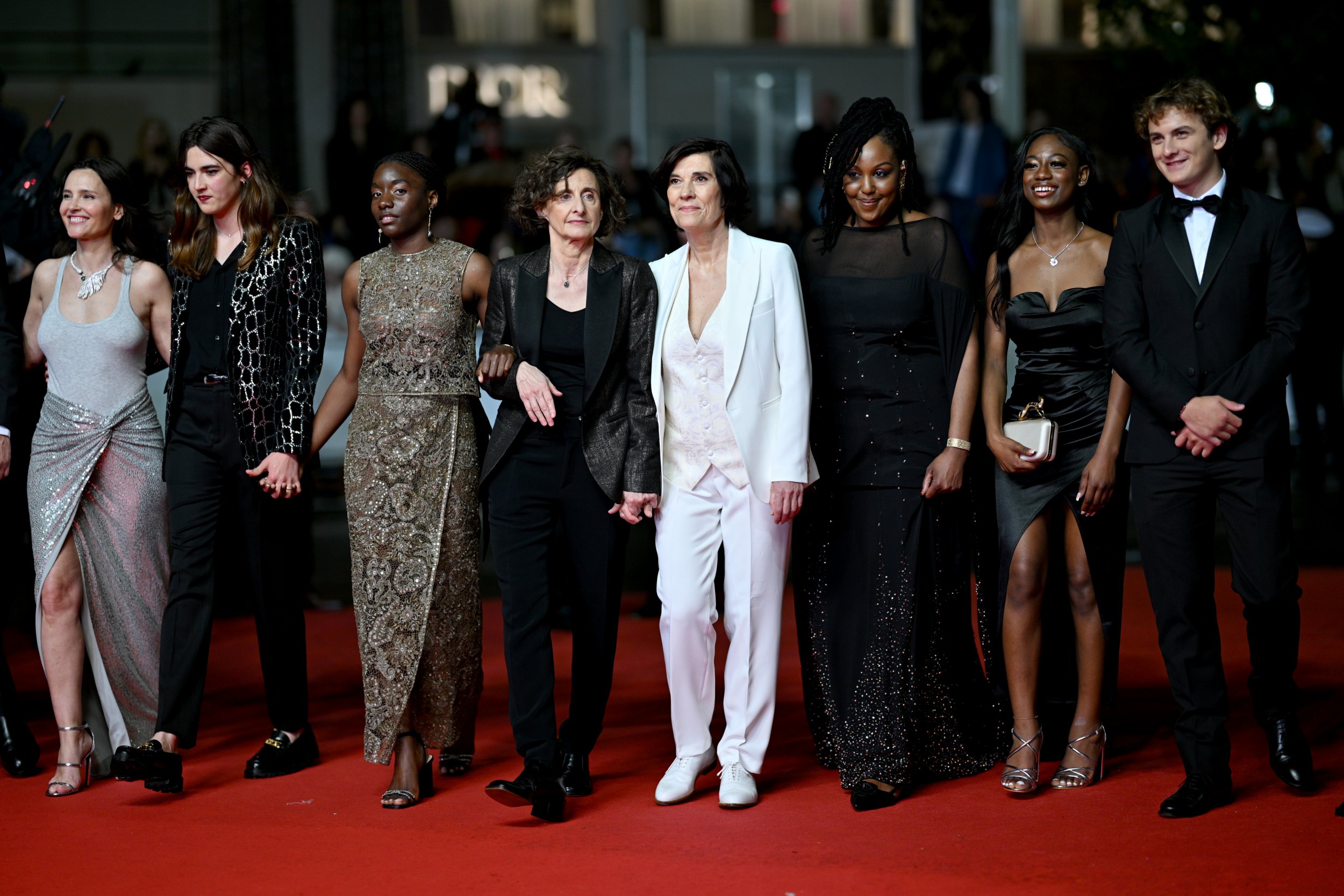
Le Retour is another film that has courted controversy too, after it was initially scrapped from the festival’s line-up due to the fact a sexualised scene with a then 15-year-old actress was not cleared with France’s Commission des Enfants du Spectacle, which director Catherine Corsini and producer Élisabeth Perez blamed on an administrative error. The scene was later removed from the film. There were also allegations of harassment on set by director Corsini and other members of the film’s crew, which Corsini has denied, and the movie was subsequently granted permission to debut at the festival again.
Le Retour follows Kheìdidja (Aïssatou Diallo Sagna), who works for a wealthy Parisian family who ask her to take care of their children for a summer in Corsica.
It’s an opportunity for her to return with her daughters, Jessica and Farah (Suzy Bemba and Esther Gohourou), to the island they left fifteen years earlier in tragic circumstances, setting the scene for certain revelations as the daughters form new relationships themselves.
As the film drew to a close, applause started before the credits had even finished, before petering out to return once the final credits had rolled.

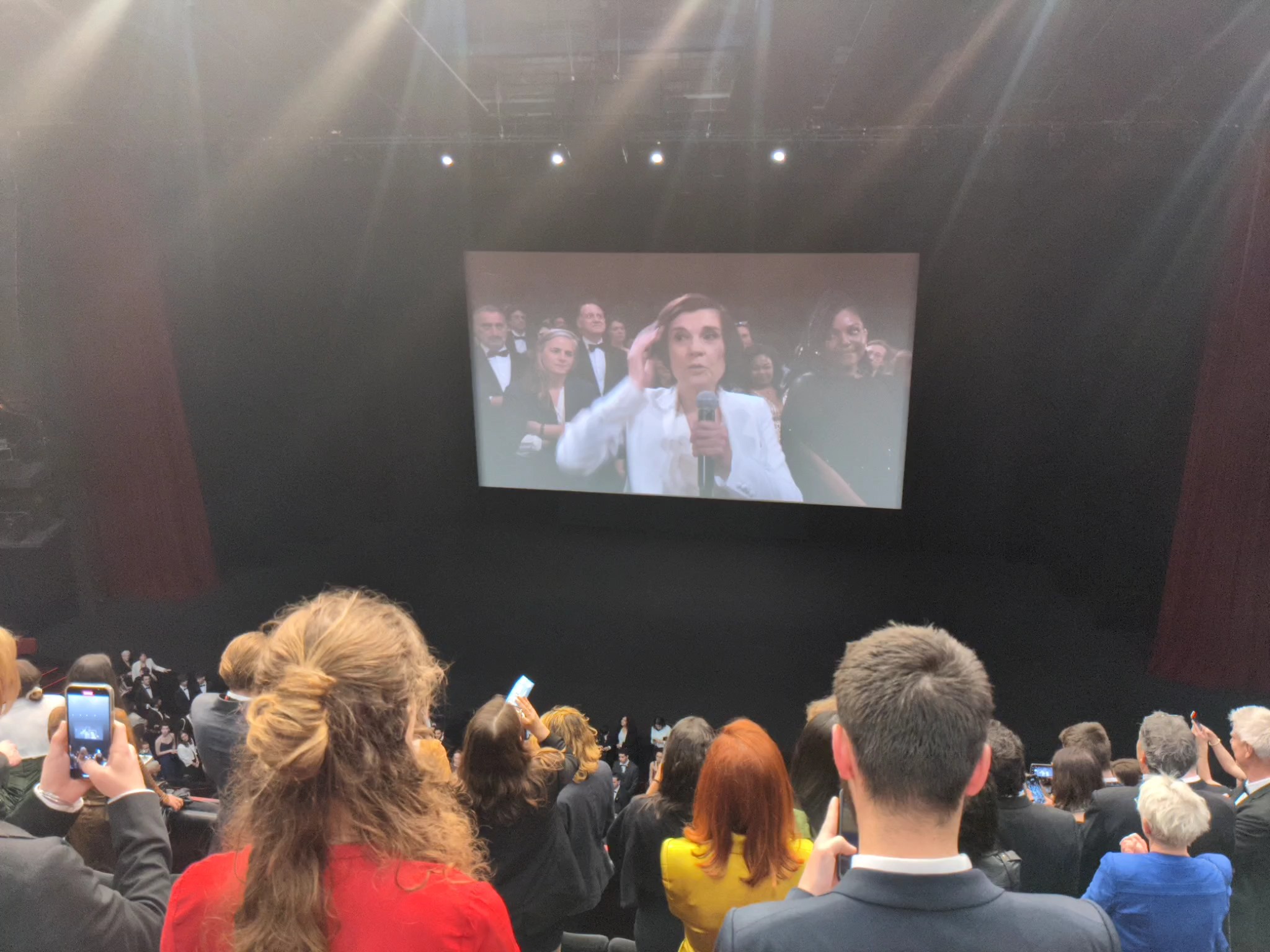
As the house lights came up, the camera approached director Corsini and main actors Sagna, Bemba and Gohourou, showing them reacting to the clapping on camera alongside other cast-members.
Le Retour received , which appears to be the standard, polite response to any film receiving its premiere at Cannes from what I’ve seen and read.
Filing out of the auditorium afterwards, cameras were then once again waiting to greet the film’s cast and crew as footage from the premieres and press conferences is broadcast live and re-played in the press areas and on big screens outside the Palais.
I won’t be offended that the guy with the camera swerved me immediately – I was mid-yawn after all. In my defence though, it was past midnight and I’d been on a 7:35am fight from London.




















